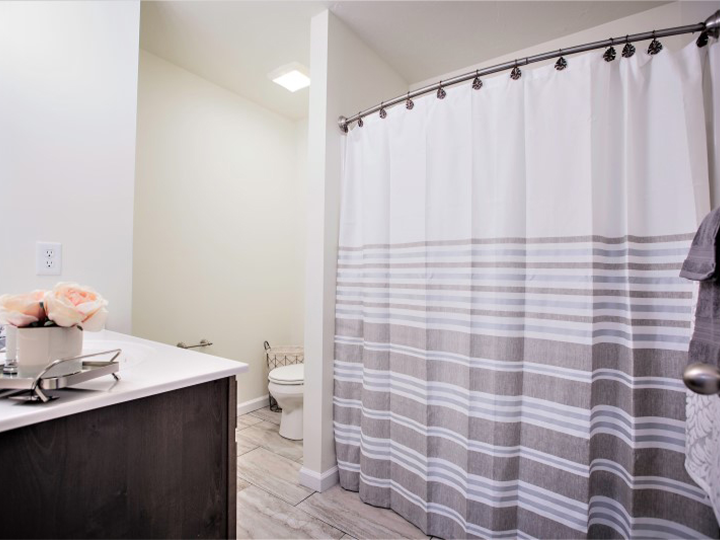A lease agreement is a foundational document that outlines the terms under which the tenant occupies the rental space. While it is imperative for both renters and property owners to have a comprehensive grasp of this document before any keys change hands, many individuals simply do not have the patience or knowledge to understand its provisions.
What is a Lease Agreement?
A lease agreement is a legally binding document between a landlord and a tenant which sets forth the terms and conditions of tenancy. This pact specifies the duration of the lease, rental payments, and outlines both parties’ rights and responsibilities. Its purpose is to protect the interests of the involved individuals—ensuring that the tenant has a secure place to live while the landlord receives consistent rental income.
Importantly, a lease differs from a rental agreement mainly in tenure. While ‘rental agreements’ are typically month-to-mouth arrangements, lease agreements usually span a fixed term, such as one year. During this time, the terms of the contract remain constant unless both parties agree to alterations.
One of the prime aspects of a lease agreement is the explicit stipulation of the rental amount. It not only prescribes the monthly fee but also addresses the security deposit, late fees, and any additional financial considerations pertinent to the residency.
Moreover, a lease agreement goes beyond financial terms to include specific provisions regarding the use and maintenance of the property. It accurately details the obligations of the tenant regarding upkeep and covers any restrictions, such as pet policies or subletting guidelines, thus laying the groundwork for a smooth landlord-tenant relationship.
Rights and Responsibilities of Renters
A lease agreement is a two-way street. It establishes your obligations as a tenant, but also guarantees you certain rights. These rights, often established by law, ensure you have a safe and secure place to live. As a renter, you can expect a habitable living environment. This means your landlord is responsible for providing a space with functional plumbing and electrical systems, along with proper heat and air conditioning (depending on your climate).
You’re also protected from unlawful eviction, meaning your landlord can’t remove you without a valid reason and following the legal process. Additionally, you have the right to peaceful enjoyment of your rental unit, free from unreasonable disturbances from your landlord or other tenants.
Of course, with these rights come responsibilities. Paying rent on time is the foundation of your agreement with the landlord. Timely payments are essential for maintaining a good relationship and avoiding late fees. You’re also responsible for taking care of the property by using it responsibly, maintaining cleanliness, and promptly reporting any necessary repairs to the landlord.
The lease agreement outlines expectations for you as a renter, including noise restrictions, limitations on guests, and pet policies. Following these guidelines ensures a smooth living experience for everyone in the building. Finally, before moving out, you’ll need to give your landlord proper notice, as specified in the lease agreement. This allows them time to find a new tenant and avoids any penalties for breaking the lease early.
Understanding Lease Terms
Leases contain legally binding terms that outline everything from the rental duration to how it can be renewed or terminated. To understand a lease agreement, one must first understand the specific terms and conditions they contain.
A key term is the security deposit, often equal to several months’ rent. This safeguards the landlord from potential damage or unpaid rent. Tenants should understand when they can expect a full refund of this deposit at the lease end.
Rent increase clauses, if included, also deserve close attention. These details explain when and how a landlord can raise the rent. This helps tenants avoid unexpected jumps in their monthly expenses and plan their finances accordingly.
Meanwhile, subletting and assignment terms define a tenant’s right to allow someone else to occupy the unit, either temporarily or by transferring the entire lease. Understanding these provisions is important for tenants who might need flexibility in their living situation or experience changes during their lease term.
Special Provisions and Addendums
Lease agreements sometimes include extra rules to address unique features of the property or tenancy. These addendums clarify expectations and ensure everyone knows the terms that aren’t covered in standard leases. For example, they might regulate satellite dishes or running a business from home.
These addendums are important because they can change or add to the regular lease terms to fit specific situations. A common example is a pet addendum, which specifies allowed pet types, sizes, and any fees or restrictions. This helps avoid disagreements about furry friends.
Both the landlord and tenant must agree to special provisions, and they need to be included in the written lease to be legally binding. Verbal agreements don’t hold the same weight and can cause problems later. So, making sure all special terms are documented is crucial to protect everyone’s rights and responsibilities.
Finally, tenants should carefully review any addendums before signing the lease. Not knowing about these provisions doesn’t excuse you from following them. Understanding and agreeing to everything in the lease is essential for a smooth and lawful rental experience.
Common Misconceptions About Lease Agreements
Another common misconception is that tenants are bound to the rental property for the duration of the lease with no recourse for early termination. In contrast, many lease agreements include early termination clauses or conditions under which a tenant may legally vacate the premises without incurring penalties, provided proper procedures are followed and conditions met.
Additionally, contrary to what some might think, oral modifications to a lease agreement after the initial signing are typically not enforceable in a court of law. For any alteration to hold legal weight, it must be in writing and signed by both parties.
There is also a frequent misconception that the security deposit can be used as the last month’s rent. This practice is generally frowned upon or outright disallowed, as the deposit is intended to cover potential damages to the property rather than rent. Tenants should treat the security deposit as a separate financial obligation—distinct from regular rental payments.
Importance of Reviewing Lease Agreements Thoroughly
Taking the time to understand and thoroughly review your lease protects you from headaches down the road. First, you’ll learn about your rights and responsibilities as a tenant. The lease spells out what you can and can’t do in the rental unit, and what the landlord has to take care of. This clarifies expectations for both parties.
Second, a careful review helps you avoid surprises. You’ll find out about things like renewing your lease, rent increases, and who fixes things when they break. This information helps you plan for the future and avoid unexpected expenses. More so, reviewing the lease gives you a chance to ask questions and negotiate. If something is confusing or you don’t like a term, talk to the landlord before signing. You might be able to get changes made to better suit your needs.
For complicated parts of the lease, consider getting a lawyer to review it for you. This can be especially helpful if there’s legal jargon you don’t understand. A lawyer can help unearth potential issues and give you peace of mind that your interests are protected when entering into a legally binding agreement.
Tips for Renters
Before signing a lease, there are some important steps you must take to avoid future problems. First, check your budget carefully. Make sure you can afford the rent (and any extra fees!) This will help you avoid financial strain later. Next, ask for a walkthrough of the place with the landlord. Look for any problems and ask for repairs before you sign the lease agreement. It is advisable to document everything you find to avoid arguments about maintenance later.
It’s also wise to know how to end the lease. Find out what the landlord expects when you move out, such as proper notice and any fees involved. Knowing this upfront will avoid surprises later. Finally, once you and the landlord agree on everything, get a copy of the lease signed by both parties. Ensure to keep it safe as this document spells out your rights and responsibilities as a renter and is important if there are any disagreements.
Enjoy An Informed Rental Experience
At Trone Rental Properties, we understand the importance of transparency and clarity in lease agreements. Our rental services prioritize providing tenants with comprehensive knowledge of their rights and responsibilities. Reach out to us today to ensure a smooth and informed rental experience!




